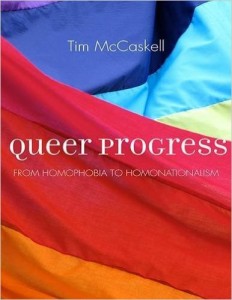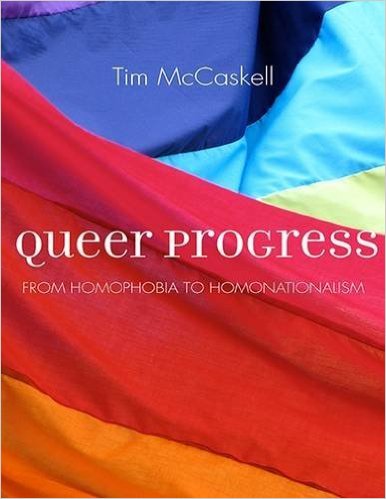 Queer Progress: From Homophobia to Homonationalism
Queer Progress: From Homophobia to Homonationalism
by Tim McCaskell
Between the Lines Press. 510 pages, $39.95
IT SEEMS CANADA is so adulated by cosmopolitan progressives in the U.S. that it’s almost a crime to say anything negative about the place. Universal health insurance is awesome, the social safety net is enviable, and Prime Minister Justin Trudeau is hot. He has promised to update laws to extend protection to transgender Canadians and intends to offer official pardons to those who were prosecuted by now-repealed homophobic laws.
Toronto-based activist and writer Tim McCaskell provides a useful antidote to this adulation, acknowledging the progress that Canada’s GLBT communities have made while offering a sobering look at persistent inequalities that impact especially indigenous people, racial minorities, and the poor.







